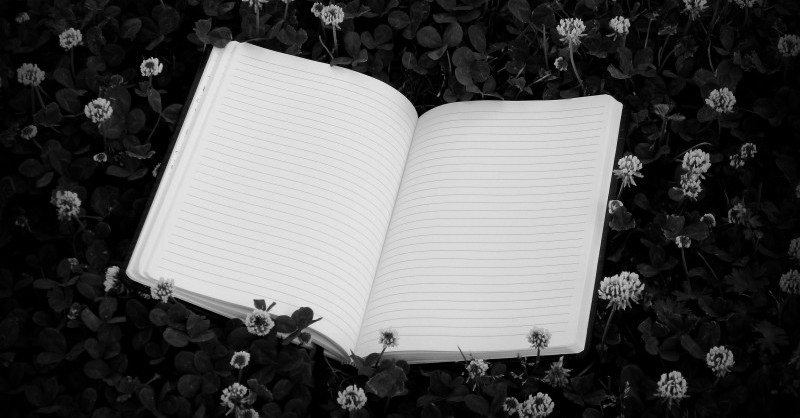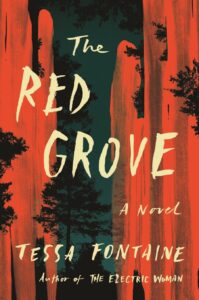
Who Will Finish Your Manuscript When You Die?
Tessa Fontaine on the Ways Writers Can Prepare For the Worst Case Scenario
At a recent visit to the doctor, I could hear “Take Me Out to the Ballgame” long before I could see its musicians. It was a jaunty rendition, with synth beats and a full-sized xylophone echoing off the long corridor I had to walk to reception. I suppose it did exactly what it was meant to do: take my mind momentarily off my reason for being there. By the time I made it all the way down the hall to where the musicians played, I tried to catch their eyes to nod in appreciation, but their concentration was absolute. Or maybe they’d been instructed not to gawk at the patients entering Duke’s cancer center.
A few weeks before, a doctor had found a tumor in my pinky that had eaten away most of the bone. I’d known something was wrong for a while. It broke all the time. I’d do downward dog, and snap. Grab a rope, and crack. It was horrible and painful and huge, but I resisted going in. It’s not the responsible choice, I know that. But I’d had cancer before, and malaria, and whooping cough, and a whole string of other unusual serious diseases that meant I was not eager to get back into the medical rotation. Plus this time, I had a baby. A baby and an incomplete book draft.
What happens to those projects, those years, those buckets filled with our memory and imagination, when we die?
One time, my well-meaning scientist husband asked me to estimate how many hours per week I’d spent writing my first book. Not realizing what he was doing, I answered. He bee-bopped on his phone, calculating, and then reported back to me, after having divided the advance on my first book by the number of hours I’d spent writing that book, how much money I was making hourly. I came very close to punching him in the throat.
Most of us are not writing for the riches. We have something deep and wild that compels us to translate imagination and memory onto the page. We get it wrong most of the time, which ignites the addiction to keep trying, to get it closer to right. It’s an obsession that can gobble up years of our lives for each project. So what happens to those projects, those years, those buckets filled with our memory and imagination, when we die?
I’d wondered this before, but it resurfaced with this most recent tumor. I had one published book, one forthcoming, and this new tender baby book that, to anyone else who opened the document, would appear as fragmented nonsensical notes. But to me, it was rich and promising and full of something I deeply wanted to say. Would it die when I died?
And then my writer friend Annie Hartnett, part of my four-person writing group alongside me, Clare Beams and Rufi Thorpe, all of us mothers of young children, said it out loud:
If I die in a plane crash, what will happen to my book?
Clare, Annie and I were out to dinner at Guy Fieri’s Dive & Taco Joint at AWP, and a wave of relief came over me. I wasn’t the only one worrying over this. Because of course it was normal to worry over what would happen to our children and partners and debt and property—but I’d never heard anyone talk about our creative lives.
Annie could not imagine all that work languishing in her computer forever, she explained, or, god forbid, her husband trying to find it to publish, only to land on an old draft and put that into the world. We munched our nachos, worrying. It was a common enough story, with many famous examples of books published posthumously, which the writers explicitly did not believe were ready or finished.
Gabriel García Márquez told his sons that an unfinished manuscript of his “doesn’t work,” and “must be destroyed,” only to have his sons publish it a decade after his death. Sylvia Plath’s Ariel came out after her death, and scholars speculate that Ted Hughes’ meddling might have significantly altered his wife’s poems for the worse.
If I die, Annie said, will you guys finish my book?
And there it was. The articulation of my private fear and, for the first time, a proposed solution.
Yes, we said. Of course we will finish your book.
Rufi, who hadn’t come to AWP that year, was quick to agree. And that was the beginning. I was elated.
Our writing group had been meeting every other week on zoom for over two years. We checked in, talked about the writing, agents and editors, plot problems, our kids, our wins, our writing questions. They’d been the ones who, after a doctor at a smaller clinic had told me I should probably just cut off my finger, urged me to get a second opinion at Duke.
There’s something deeply reassuring about this leveling-up we’ve just done with each other.
We didn’t exchange work regularly—the whole point was that we could support one another without the kind of commitment that workshopping regularly requires. Plus, we were all past our first books, mostly past the second, and we understood that there are long, deep parts of the process where you don’t need feedback, where outside voices might even be harmful. Once we had full manuscripts, we exchanged them and discussed. No conversation has ever been more helpful, so I knew I trusted these writers completely.
But this was a new thing.
What if this was just part of our writing group, part of our pact, Annie asked. A death pact. If one of us dies, the other three of us will finish their book.
Yes, we agreed. Let’s take this one anxiety off the table.
We decided that within the group, we each have another writer we’re the most stylistically aligned with; Annie to Rufi, me to Clare. Our more similar writer would take the lead on finishing, should one of us kick the bucket, and the other writers would provide backup. As far as I know, none of us are mortally ill, or engaged in extremely risky behaviors. But there’s something deeply reassuring about this leveling-up we’ve just done with each other.
I got back good news: the tumor is not cancerous. My pinky doesn’t need to be cut off quite yet. They extracted the tumor, and now some bone is growing back. So is the tumor, unfortunately. It’s just another one of life’s weird things, which I can now add to the list I keep my writing group updated on, alongside my two-year-old daughter’s song mashups, and what’s happening with my new novel that’s about to come out.
Rufi, Clare and I all have novels out this spring; Annie’s next will come out in 2025. We’re all deep in new projects. And though I plan on sticking around for a long time, I am thrilled—truly delighted—by the idea of how good (honestly how much better) a book of mine would become in the hands of these writers I love so much.
__________________________________

The Red Grove by Tessa Fontaine is available from Farrar, Straus and Giroux, an imprint of Macmillan, Inc.
Tessa Fontaine
Tessa Fontaine is the author of The Electric Woman: A Memoir in Death-Defying Acts, which was named a New York Times Book Review Editors’ Choice, a Barnes & Noble Discover Great New Writers choice, and a best book of the year by Southern Living, Amazon, Refinery29, and the New York Post. Her writing can be found in Outside, Glamour, AGNI, and The Believer. She has been a sideshow performer, a shoe saleswoman, and a professor, and she taught for years in jails and prisons. She cofounded and runs the Accountability Workshop with the writer Annie Hartnett. Raised among the redwoods of Northern California, she now lives in Asheville, North Carolina, with her husband, daughter, goofy dog, and sassy cat.



















